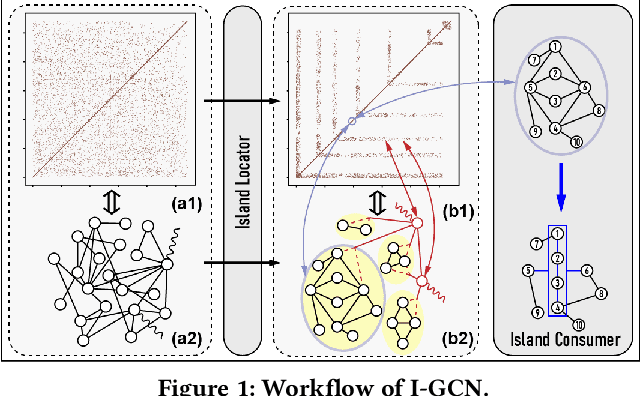Martin C. Herbordt
I-GCN: A Graph Convolutional Network Accelerator with Runtime Locality Enhancement through Islandization
Mar 07, 2022



Abstract:Graph Convolutional Networks (GCNs) have drawn tremendous attention in the past three years. Compared with other deep learning modalities, high-performance hardware acceleration of GCNs is as critical but even more challenging. The hurdles arise from the poor data locality and redundant computation due to the large size, high sparsity, and irregular non-zero distribution of real-world graphs. In this paper we propose a novel hardware accelerator for GCN inference, called I-GCN, that significantly improves data locality and reduces unnecessary computation. The mechanism is a new online graph restructuring algorithm we refer to as islandization. The proposed algorithm finds clusters of nodes with strong internal but weak external connections. The islandization process yields two major benefits. First, by processing islands rather than individual nodes, there is better on-chip data reuse and fewer off-chip memory accesses. Second, there is less redundant computation as aggregation for common/shared neighbors in an island can be reused. The parallel search, identification, and leverage of graph islands are all handled purely in hardware at runtime working in an incremental pipeline. This is done without any preprocessing of the graph data or adjustment of the GCN model structure. Experimental results show that I-GCN can significantly reduce off-chip accesses and prune 38% of aggregation operations, leading to performance speedups over CPUs, GPUs, the prior art GCN accelerators of 5549x, 403x, and 5.7x on average, respectively.
 Add to Chrome
Add to Chrome Add to Firefox
Add to Firefox Add to Edge
Add to Edge